MercoPress. South Atlantic News Agency
Tag: South Atlantic
-
Thursday, February 17th 2022 - 10:20 UTC
No more searching for survivors from Spanish fishing trawler
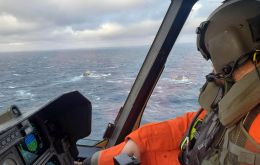
Canada's naval authorities have stopped searching for survivors of the Spanish fishing trawler “Villa de Pitanxo” which sank abruptly off Newfoundland Tuesday, it was announced.
-
Tuesday, February 15th 2022 - 21:55 UTC
Spanish trawler sinks in Canadian waters: 7 dead, many missing
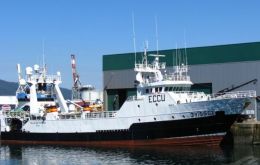
A Spanish-flagged trawler has sunk Tuesday off the Newfoundland coast in eastern Canada, killing at least seven people while rescue efforts were underway to find the rest of the crew. Three survivors have been found, and a lifeboat is still missing. Hence hopes are high others could have made it through.
-
Monday, January 31st 2022 - 12:55 UTC
Argentina decries British “show of force” in South Atlantic
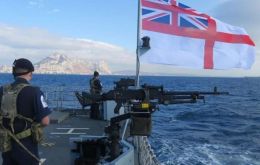
Argentina's Foreign Ministry has labeled a new military deployment by the United Kingdom in the Falkland Islands as “a new and unjustified show of force and a deliberate departure from the calls of the numerous resolutions of the United Nations and other international organizations.”
-
Saturday, January 29th 2022 - 02:40 UTC
Biologists to monitor South Atlantic fauna during 2022 Antarctic campaign

The Argentina Navy's icebreaker ARA Almirante Irízar has added four biologists to its crew to monitor wildlife in the South Atlantic and around Antarctica, the news service Télam has reported.
-
Friday, January 28th 2022 - 20:55 UTC
Argentina's JMC has 431 foreign vessels on its radar
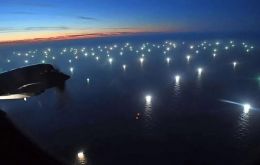
Argentina's Joint Maritime Command (JMC) has denounced the presence of some 431 foreign boats near the country's South Atlantic territorial waters limit, it was reported. Around 80% of the vessels were said to be of Chinese origin.
-
Tuesday, January 18th 2022 - 09:35 UTC
Argentine jiggers authorized to operate between parallels 44 and 48 South
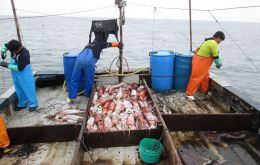
Since Saturday, January 15, zero hours, Argentine jiggers have been allowed to operate between parallel 44 and parallel 48 South, following the lack and/or minimum catches at the original specified area of parallels 49 to 52 S.
-
Monday, December 20th 2021 - 23:59 UTC
“Malvinas Argentinas,” Chile's President-elect once told UK Ambassador

Argentina's ruling Frente de Todos (FdT) was quick to celebrate Gabriel Boric's win in Sunday's presidential runoff in Chile.
-
Saturday, December 18th 2021 - 09:22 UTC
Argentina creates Joint Maritime Command to patrol national waters

Argentine Defense Minister Jorge Taiana announced the creation of the Joint Maritime Command, which will be in charge of the permanent patrolling and monitoring of the Argentine sea.
-
Saturday, December 11th 2021 - 09:15 UTC
Argentina's toothfish tagging cruise between 37 and 56 degrees South Atlantic
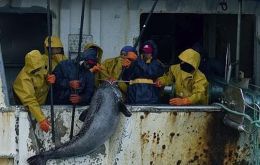
Argentina's Fisheries Research and Development Institute, INIDEP, reports that last week the vessel Argennova XIV, concluded a project for the tagging of toothfish (Dissostichus eleginoides), in the South Atlantic.
-
Wednesday, December 8th 2021 - 09:30 UTC
Some 300 Chinese fishing vessels crossing Magellan Strait to the South Atlantic, Argentine report
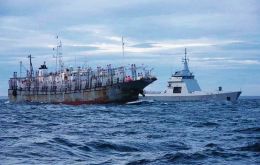
In a joint operation, the Argentine Navy and Coast Guard are monitoring and keeping track of an estimated 300 Chinese fishing vessels that are sailing from the Pacific to the South Atlantic across the Magellan Strait.
